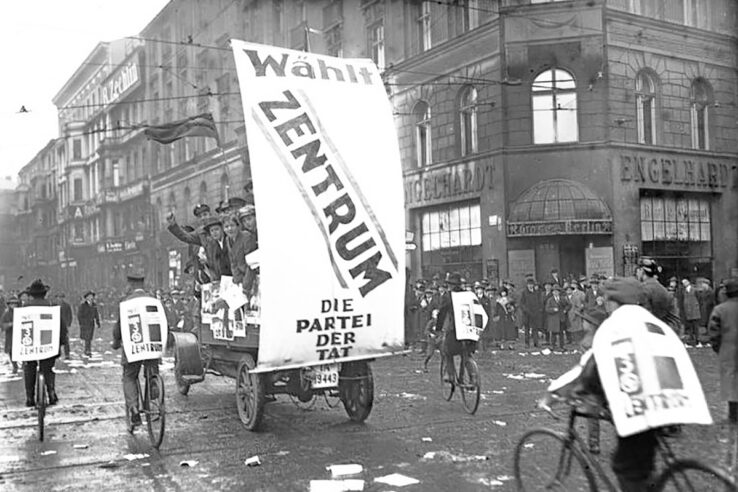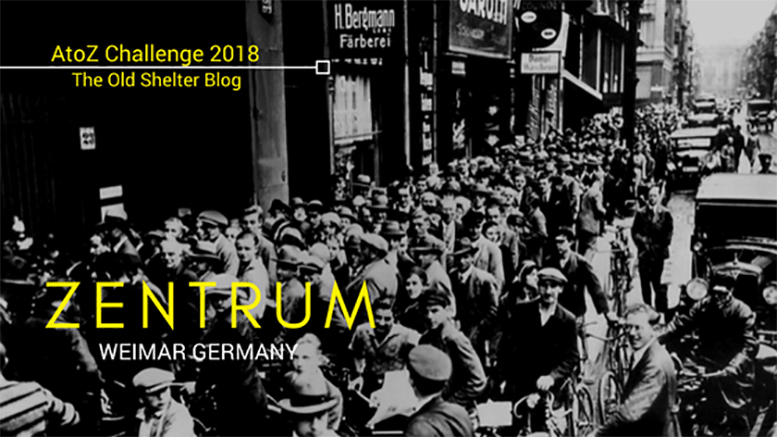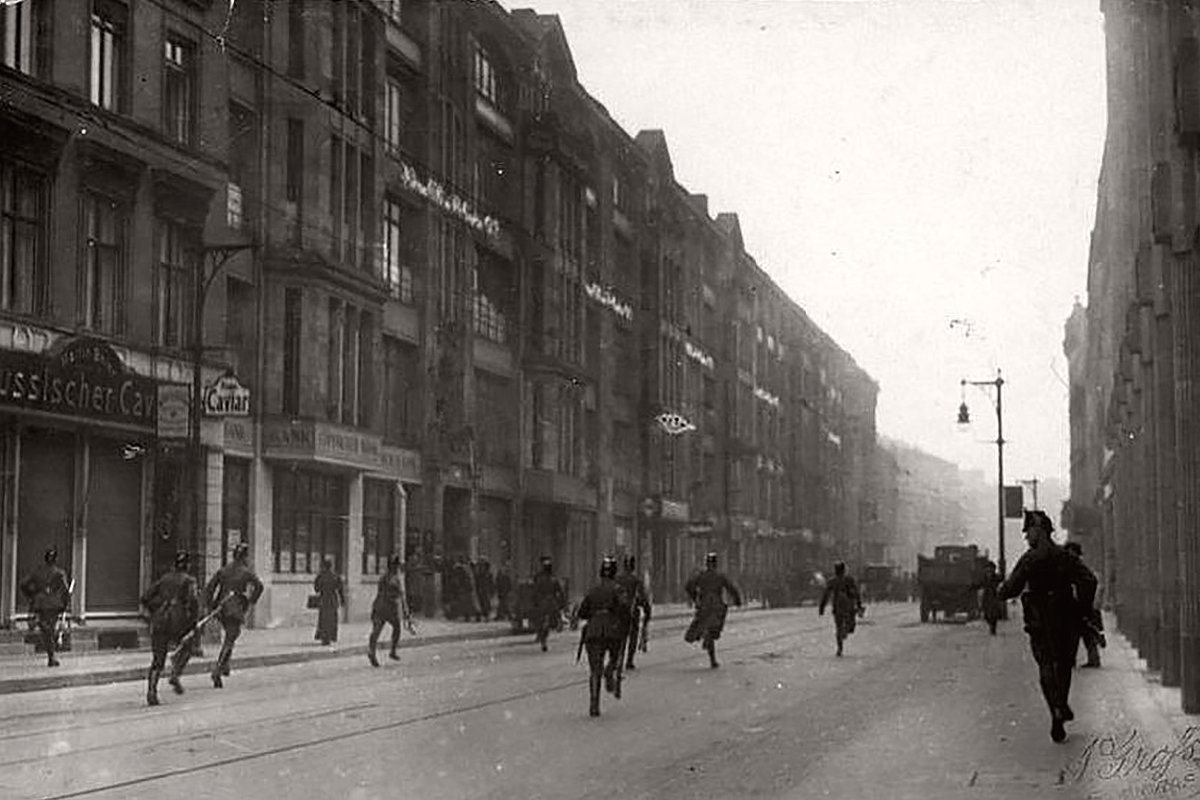Zentrum (the Center Party) was founded in the 1870s to protect the rights of the Catholic minority and was always held together by its commitment to Catholicism.
In the years of the Republic, it shared some views with the left. It supported the welfare state, for example, and worked for an international understanding among nations. Its leader, Matthias Erzberger, helped to uphold the Weimar Constitution and supported parliamentary democracy. Zentrum also worked for the preservation of the federal states, the Länder.
At the same time, Zentrum shared views with the right. It advocated a patriarchal system of cooperation at home and was quite conservative about the nation’s defense.
Despite being part of the government coalition for most of the history of the Weimar Republic, Zentrum was never a faithful supporter. As a Catholic party, they ill-tolerated a republic that was considered “Marxist”, whose ideals and provisions — vote to women, openness to Jews and homosexuals, tolerance toward the decadent forms of art — were hard to uphold. Zentrum greatly preferred the monarchy, especially considering that the Empire had made religion one of the pillars of its power. In fact, Zentrum was not opposed to the idea that a strong man should guide the nation.
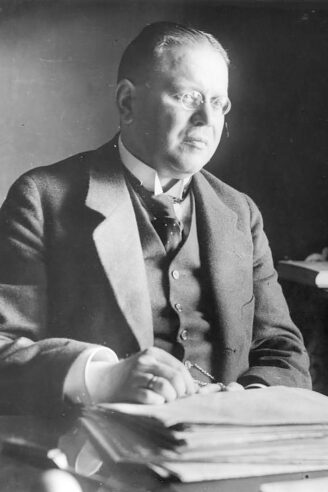
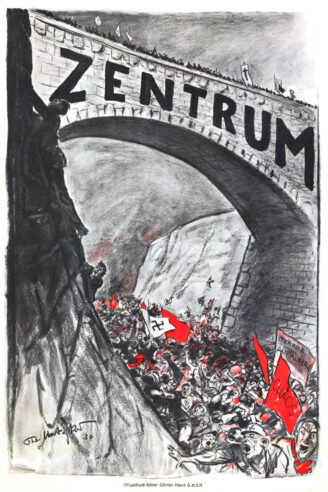
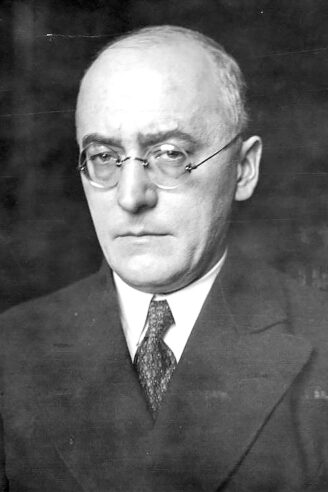
In 1930, a member of Zentrum, Heinrich Brüning, was appointed as chancellor of a minority government with a parliament that mostly formed by Communists and the newly successful NSDAP. Brüning tried to appeal these forces by proposing a more nationalistic policy that was mostly rejected by the Reichstag, so that he was forced to govern by presidential emergency decree time and again. It is believed that this opened the way to the fatal use of that same act in the appointment of Adolf Hitler as chancellor in 1933.
And so it was right in the Reichstag, the seat of the democratic government, that the Weimar Republic found its end.
This story was originally published at The Old Shelter as part of an A-to-Z challenge about the history of Weimar Germany, April 30, 2018.

